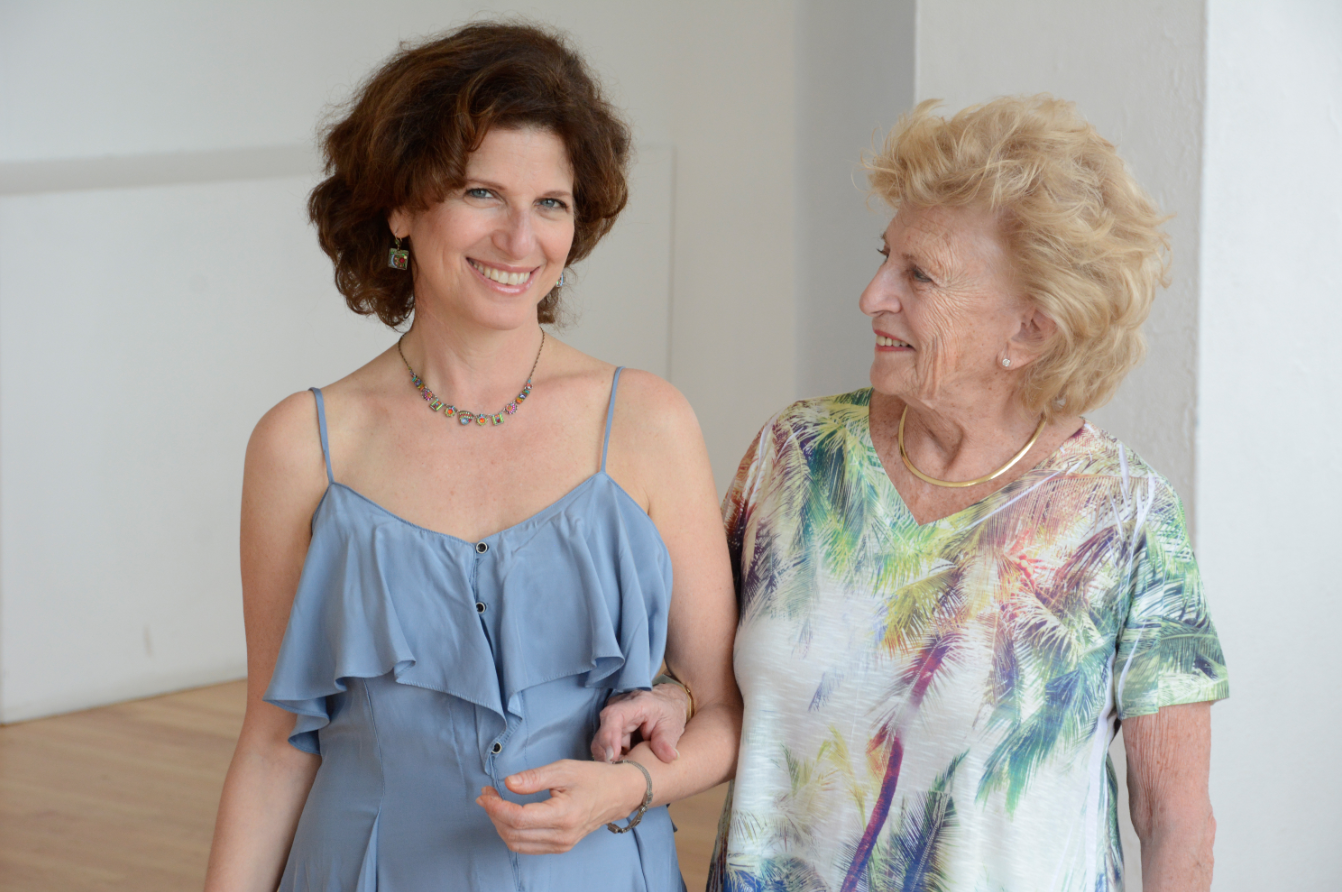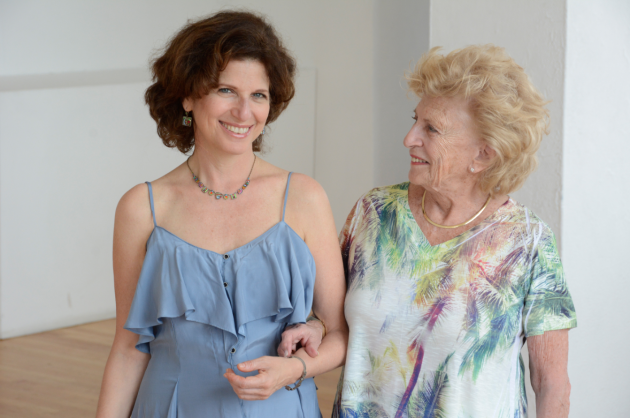
Gayle Kirschenbaum, “Accidental Therapist” for People Who Don’t Get Along With Their Mothers
But there is also progress; and, yes, some healing. Some of this happened before Gayle officially began filming, in 2011. In 2006, her father died; Gayle and her mother, both wanting to travel and preferring to do so with a companion, became “travel buddies” and realized they were well suited in this way. While seeing the world, they began to get to know each other as adults with complex histories. “As soon as I started reframing how I looked at my mother, things started changing,” Gayle says.

Photo by Tina Buckman
At times during our interview, I am put on speakerphone so Mildred can hear me. When I ask Gayle if she thinks her mother changed during the making of the movie, Mildred is put on the phone directly and gives me her own answer in one word: “No.”
Mildred may not have changed, but some things have. The mother-daughter joint therapy, for instance, was very helpful to Gayle. “One of the things that was insightful [during filming] came from one of the therapists,” Gayle says, “when she pointed out that I was an entirely different person than the rest of my family.” In the film, the therapist notes that practicality and matter-of-factness reigned supreme in the Kirschenbaum home, and no one knew how to handle an emotional little girl who wanted to express big feelings. Indeed, the moment brings some insight and a sense of peace to viewers, too.
Also revealing and even more poignant is a scene in which Mildred gives a tour of her Florida home. The paintings: by Gayle. The sculptures: Gayle’s work. Drawings: Gayle again. “Gayle could do anything,” Mildred says with obvious pride, reflecting on the child with artistic talent who has become a successful adult in the arts. Mildred doesn’t always seem to understand Gayle, but she is proud of her. Perhaps she always was.
As for why she agreed to participate in the film, Mildred (back on speakerphone) tells me something that it’s hard to imagine her having said in Gayle’s youth: “I love her too much to refuse her.”
The film raises as many (difficult) questions as it answers; but it’s compelling from beginning to end. “People say the film changed their lives,” Gayle says, “and put them back in touch with their parents.”
Forgiveness, she continues, is possible as a process even on one’s own: “I made this film to help other people. I tell people, even if the person who hurt you is long gone—you do the work for yourself.”
http://www.lookatusnowmother.com



